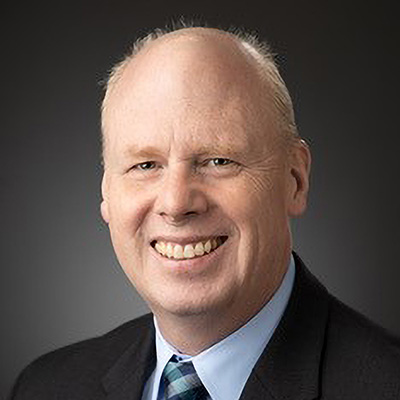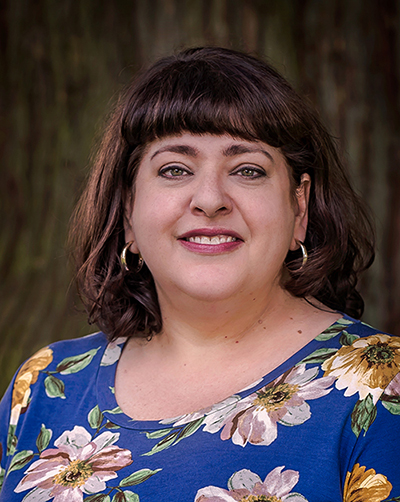Main Content
Kalea Velasco-Cosare
Leading by Example
Kalea Velasco-Cosare chose to pursue the Bachelor of Arts degree with a major in Healthcare Leadership (BAHCL) at UW Tacoma because it fit well with her academic background and interests. She took classes at South Puget Sound Community College through the Running Start program offered at her high school and took the prerequisite classes for the BAHCL program as well as many college-level classes that would transfer to UW Tacoma. Her past coursework would allow her to finish her bachelor’s degree in two years. Kalea’s interest has always been working in healthcare but not as a nurse or a doctor so the BAHCL program aligned with her career goals as well.

Kalea really enjoyed her class, The Business of Healthcare because it gave the students all the fundamentals that they need to know about the American healthcare delivery system such as how insurance works, how to run a business, how to be a leader, and how to make fundamental healthcare decisions.
She shared the most challenging part of the program has been working and communicating with a diverse group of people due to everyone’s busy schedules. At the same time, this aspect has been the most rewarding part of pursuing this major! She thinks networking opportunities with her professors and classmates are a beneficial part of the BAHCL program.
Since Kalea is interested in rehabilitation such as physical therapy and patient coordination in a hospital setting, she hopes her fieldwork in the BAHCL program can include these areas. She also would like to learn more about the administrative side of healthcare.
Kalea is already demonstrating leadership qualities both at UW Tacoma and within her community. She is planning ahead and taking prerequisite requirements for physical therapy schools while she is completing the BAHCL degree. She is also volunteering at Mary Bridge Children’s Rehab Clinic every week. Kalea has also taken on several leadership roles at UW Tacoma such as the current President of Student Partners in Action to Transform Healthcare (PATH), the Global Honors Student Leadership Co-chair last year which she hopes to continue doing this year, and current senator for the School of Nursing and Healthcare Leadership. She was also selected as a 2023-2024 Dressel Scholar, a prestigious recognition.
After she graduates from the BAHCL program, she would like to get a job in healthcare. Then start a doctorate program in physical therapy to become a physical therapist because she prioritizes being healthy and physically active. She also likes the physical therapists’ approach to healing because it is more natural and uses the human body rather than medication and surgery to heal. Kalea believes in the powers of alternative medicine.
Her longer-term goal is to open her own clinic in Hawaii to help underserved patients. Kalea is native Hawaiian and would like to represent people of color in the physical therapy field. She has the opportunity to attend college as an undergraduate student and hopes to go to graduate school. She would like to leverage her privilege and give back to the community. Due to her family’s own experiences, she saw the stigma people of color experience going into healthcare facilities. Her family was reluctant to get the treatment they needed due to costs and their credibility being doubted by the medical team. She wants patients to be treated by people that reflect themselves and make care affordable and culturally appropriate. She would like the community involved in other people’s healing.
When asked what recommendations she has for future BAHCL students, Kalea says that they should prepare themselves for lots of group work and be ready to put themselves outside of their comfort zone. Also, they should try to make friends outside of class by socializing and connecting with their fellow classmates/peers so they can find and build their own community while at UW Tacoma.
Would you like to learn more about our BAHCL student, Kalea Velasco-Cosare?
Listen to our Podcast: SNHCL Meet & Greet on October 18, 2023!
Dr. Timothy Feagan
Healthcare Leader's Vocation for Teaching
Dr. Timothy Feagan has over 25 years of leadership experience in healthcare, telecommunications, high-tech manufacturing, and financial services. He has helped individuals, teams, and organizations become more effective in his various organizational development and talent management roles.

His last position in the private sector was as Vice President & Chief Talent Officer at Providence St. Joseph Health, Providence St. Joseph Health, a 52-hospital health system operating in seven western states.
Dr. Feagan had set long-term goals of getting his PhD and going into teaching, a long time ago. He had already earned his PhD in Leadership Studies in 2012 from Gonzaga University. However, the COVID-19 pandemic gave him the impulse to finally transition into higher education. Dr. Feagan began teaching as a part-time lecturer at the UW Tacoma School of Nursing and Healthcare Leadership in 2022, and is also on the faculty at Seattle Central College in the Healthcare Services Management program.
Dr. Feagan’s healthcare experience includes organizational strategy and design, operational excellence, workforce planning, talent management, patient safety and quality improvement, and leadership development, which benefits his students since he is able to share insights gained from his own personal experiences. Taking his own observations from his organizational development and leadership development work and applying them to his classes has helped Dr. Feagan become a better professor. He has seen firsthand what effective and ineffective leaders do since he has worked with hundreds of people in leadership positions.
Dr. Feagan is passionate about quality improvement and patient safety since it has not necessarily been a high priority in the history of healthcare. Dr. Feagan pointed out that even though substantial improvements have been made in healthcare quality and patient safety over the past 20 years, some estimates are that there are still about 250,000 deaths every year from medical errors.
Dr. Feagan commented that UW Tacoma School of Nursing and Healthcare Leadership’s BAHCL program is a very robust program on a bachelor’s level. It prepares students well to take on various healthcare management and leadership roles, as well as helping current healthcare leaders accelerate their careers. He mentioned that there are also many non-leadership positions students can leverage, even though they do not have “manager” or “director” in their titles, in order to gain leadership experience and leadership skills they can build on. He encourages students to jump into areas that they are not familiar with, which is a characteristic of high potential leaders. His advice for students is to look for those opportunities and volunteer to develop their skills to become healthcare leaders.
Dr. Feagan shared what attributes he has seen in effective leaders that BAHCL students as future healthcare leaders should know:
- Leaders have the rigor and discipline to do the basics well, every day.
- Leaders value and respect their teams, and get to know their teams on a personal level, such as what they enjoy doing outside of work.
- Leaders set clear expectations for their team, helping them understand what success looks like.
- Leaders give regular feedback and celebrate individual and team achievements.
- Leaders understand their organization and the healthcare industry at a very deep level, and understand financial concepts and implications.
- Leaders inspire teams around a compelling mission and vision.
Would you like to learn more about Dr. Timothy Feagan?
Listen to our Podcast: SNHCL Meet & Greet on October 18, 2023!
Janet Runbeck
Being a Voice for Others that Can't Speak
Janet Runbeck, RN, MN decided to become a nurse so that she could travel and knew that an American nursing license allowed her to do this. Janet’s wealth of experiences includes working as a rural emergency nurse, volunteering in Thailand at a United Nations refugee camp, and with the Cuban refugees in Florida. She pursued academics with a Demography certificate program sponsored by the United Nations at the University of India, Emergency/Primary Care Nurse Practitioner certificate, a Bachelor’s in Geography minoring in Business, and eventually a Master of Nursing from UW Tacoma’s School of Nursing and Healthcare Leadership. This led her to find her passion in volunteering and becoming a voice for the most vulnerable populations.
Janet Runbeck has been actively volunteering since earning a UW Tacoma Master of Nursing degree in 2006, with a focus on community health. She served as the Finance Administrator for Pierce County Medical Reserve Corps (PCMRC) from 2009 to 2023. She has been doing street outreach through PCMRC since March 2020 and has seen firsthand policies gone awry. Janet thinks advocacy, implicit bias, and understanding of the historical impact of bad policy need to be taught in a nursing curriculum so that there are less barriers for the most vulnerable populations.
At the beginning of the COVID pandemic, with so many unknowns and dangers, Janet was a frontline volunteer RN who was able to set up an isolation ward at the Salvation Army Church in Tacoma for homeless people exposed to COVID. She was the nurse manager, triaging and working with healthcare providers. She promoted prevention of COVID by volunteering with the Tacoma Pierce County Health Department and the Pierce County Coalition to End Homelessness at free COVID vaccination clinics.
Janet is out on the streets as well as in the shelters. Since the Fall of 2022, she has led a team of nurses every week to provide foot care at Tacoma Rescue Mission or Nativity House. She assesses the physical condition of the persons experiencing homelessness, then advises them on the type of help they need. However, since resources are so severely lacking, she may have to improvise. For example, due to lack of transportation services, Janet will take homeless individuals in her own car to the local hospitals and clinics. Janet indicated that a robust street medicine system does not exist yet, so she and the other volunteers provide basic one-on-one care.
Not everyone Janet reaches out to is willing to get the help they need although it is rewarding for her when someone does. There is a loop near South 38th Street and South Tacoma Way where many homeless people camped during the fall and winter. Joining other volunteers, Janet helped distribute food and other items, such as Narcan, socks, and blankets. She requested and received funds for first aid kits which are in high demand. During a cold freeze, Janet tried to convince a woman to go to the Tacoma Rescue Mission. Although that woman declined services, the woman in a tent next to her agreed to go, which was significant, since many of those who are houseless do not trust hospitals and shelters.
Janet has seen a high percentage of those who are houseless with diabetes and heart disease which is almost double the rate of the general US adult population. This mirrored the rate of chronic diseases among the uninsured that were treated at a free clinic Janet founded and managed. In 2009, with the loss of jobs, and hence insurance, the free clinic volunteer staff cared for folks until January 2014, when the Affordable Care Act was able to provide coverage for all of the clinic’s patients. Whether it is a homeless man who needs footcare, an undocumented woman with hypertension, a child in a poor school district needing immunizations, or any other population suffering from barriers to care, Janet works to increase access. Janet shared that the nurses who volunteer are very passionate about the work they do. There is no vacation for the poor or disenfranchised. Volunteer nurses have saved lives by connecting clients with essential care.
Janet explained, “It is wonderful working with other nurses. Human beings need meaning and purpose in their lives. Healthcare is very purposeful and if done right, improves health outcomes and creates a satisfying sense of helpfulness. Advocacy comes as a result of the breakdown of policy, causing worsening conditions. Nurses are in the rare position of being a trusted voice for others, which gives us the responsibility of advocating for better health for all.”
Would you like to learn more about Janet Runbeck?
Listen to our Podcast: SNHCL Meet & Greet on October 18, 2023!
Cindan Gizzi
Helping to Achieve Mission of Healthy People and Communities
Cindan Gizzi has a special passion for public health but her path into the field was not direct. She obtained an undergraduate degree in public relations and journalism. Cindan’s first job was in public relations for healthcare, and she quickly realized that she loved healthcare. In addition to her affinity for data, she wanted to be of service to people and to be able to do more so she went back to school for her Master’s in Public Health in Epidemiology at the University of California, Los Angeles.
Cindan is now Interim Director of Health at Tacoma-Pierce County Health Department (TPCHD) and oversees all the Department’s programs, including community engagement and health equity work in Pierce County. She took on this role in July 2023 when Dr. Anthony Chen, former TPCHD Director of Health retired. In this new leadership role, Cindan thinks a lot more about TPCHD’s strategic plan, long-term goals of the health department, and organizational culture and is now working more closely with the Board of Health. Cindan is enjoying this new forward-facing and community focused role especially community engagement events like the Kids Safety and Health Fair at Hilltop in Tacoma and the Asian Pacific Cultural Center’s Polynesian Luau event in Tacoma.

Cindan thinks public health is rewarding because there is so much community engagement and it is a great opportunity to improve people’s lives since you are working toward improving population health and affecting huge groups of people. She mentioned that, “We learn from and listen to multiple communities in Pierce County. There is a vibrancy in each community. We get to engage and do meaningful work – changing policies and improving systems. Helping people live healthier.“
The Health Department has a total of six communities of focus. They started with three and added another three communities. Recent data indicates that two of these communities in Tacoma have the worst health outcomes and health inequities regarding disease rates, death rates, air quality, and access to healthy food, access to parks, etc. Their staff’s work with these community members includes listening to understand what they want to do to improve their own communities. TPCHD staff may help bring in funding and grants for the communities by gathering data showing health inequities. Their staff will help put the decision making in the hands of the communities such as voting on how to spend the money whether it is on community gardens, renovation of school bathrooms, park improvements or something else. Their staff may bring in people of other agencies and help make connections or help lift up some concerns of their communities.
At TPCHD, Cindan helps remove barriers of communication and processes so internally it is easier for their staff to do their work. Public health staff worked hard during the COVID pandemic and staff ended up burning out. They hired a staff resilience coordinator that supported staff and promoted self-care. TPCHD helped find resources to better support the staff such as money for their internal wellness service team. Their staff voted on what they wanted to do with this money which resulted in a family event at Stewart Heights Park. She has seen the direct benefits on their staff.
Cindan would like to continue in leadership roles - in particular in the TPCHD and keep contributing by giving back to the community that has helped her. She would like to help improve health outcomes and work towards more equitable and racially just policies.
Cindan Gizzi has also shared her skills and expertise outside of TPCHD. She is a member of the School of Nursing and Healthcare Leadership’s (SNHCL) clinical faculty and has collaborated with SNHCL in many ways such as hosting SNHCL students for their practicums and fieldwork, working with our faculty to apply for grants together, collaborating on our faculty’s research projects or providing public health data, and giving training or teaching some classes on UW Tacoma’s campus.
Cindan shares the following advice for students:
- Figure out what you love first and then how you can make money doing that
- Get practical experience whether volunteer or paid outside of class
- Work on gaining good communication skills - being able to express yourself clearly and being engaged when you talk to others
- Be aware of your strengths and weaknesses and how you can improve your weaknesses
- Explore public health
Would you like to learn more about Cindan Gizzi?
Listen to our Podcast: SNHCL Meet & Greet on October 18, 2023!
Join the SNHCL Newsletter Mailing List
The School of Nursing and Healthcare Leadership sends out a quarterly newsletter that includes updates of alumni, faculty, and the SNHCL community. If you would like to receive the newsletter, complete this form to be added to the mailing list.
